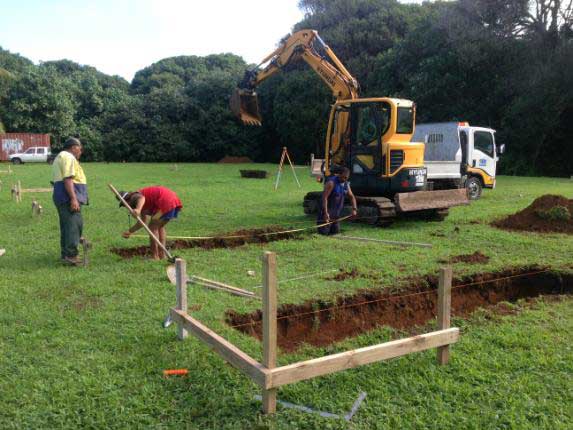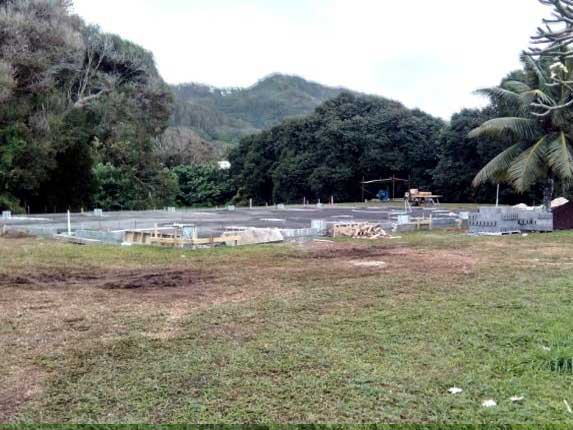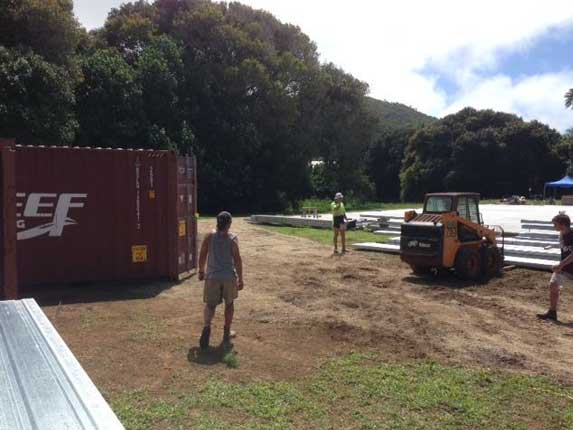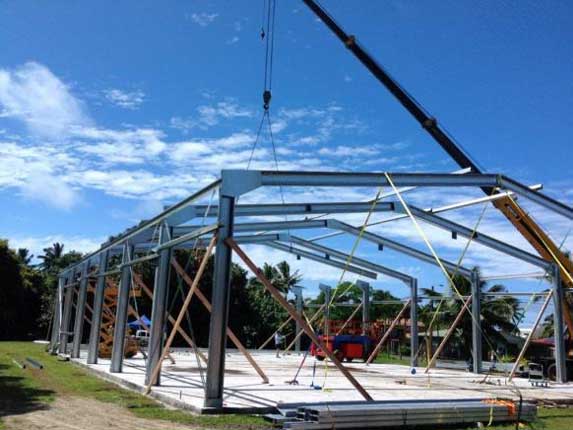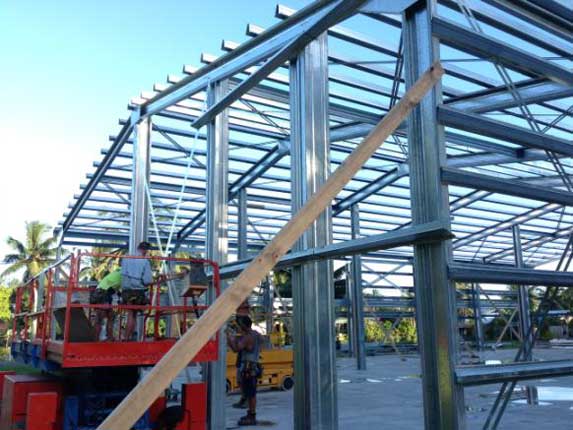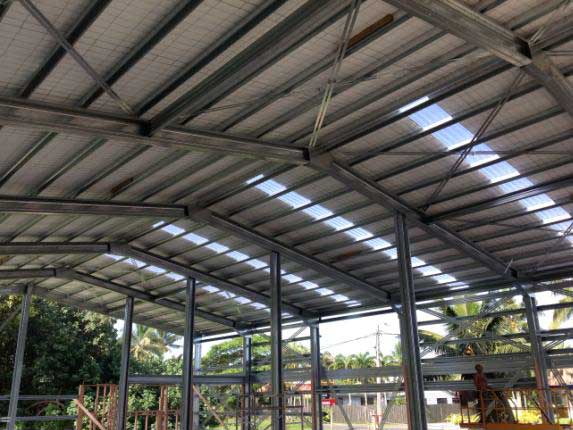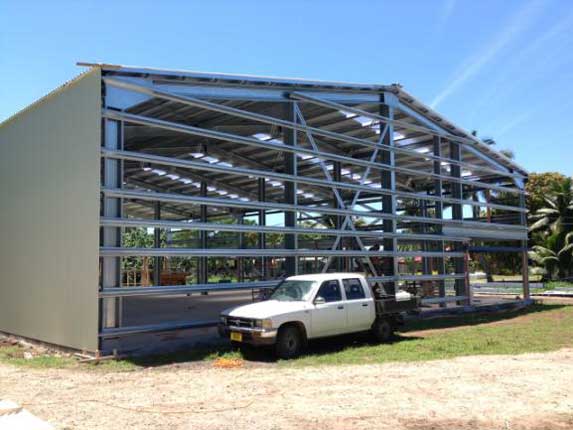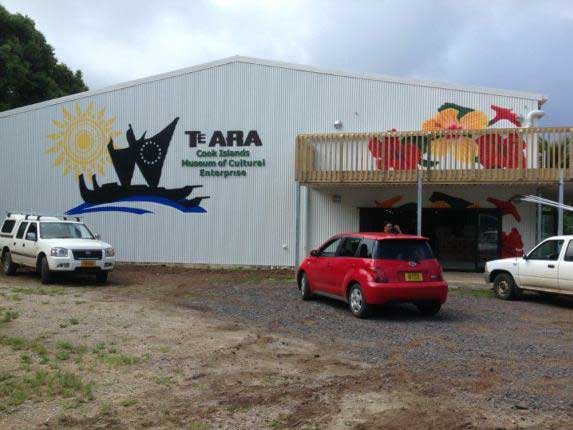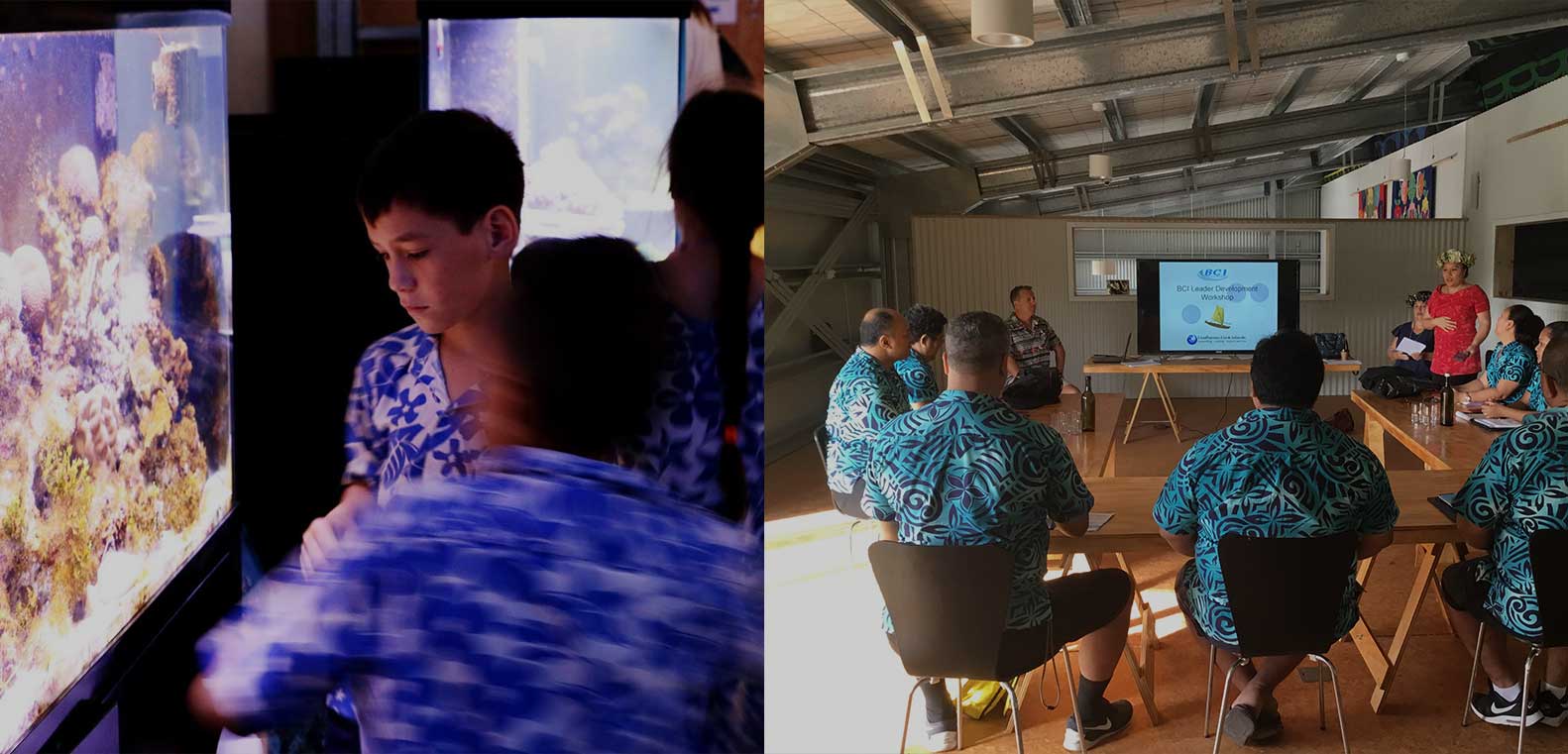
OUR MISSION
Kia orana (may you live long)
The Cook Islands Museum of Cultural Enterprise - TE ARA (the path, the way, the journey) is a business incubator that fosters greater economic self-determination for Cook Island’s peoples.
With us, you’ll support only local made products which safeguards local jobs, feeds local families, preserves local culture, uses local resources and reduces import waste, protecting our local environment - the ocean. And for that... we are grateful.
For you who have travelled so far we offer the opportunity to share our culture through our historical display to truly understand this unique and special place you've visited in the middle of the south pacific called the Cook Islands.
Meitaki ma’ata (thank you very much).
Blue is the ocean, our unique, home environment
Yellow is the sun, birth, new growth, a new day
Green is our land
Brown are our people
OBJECTIVES
- To bring together the communities of the Pacific to enhance business trade and business knowledge sharing, thus allowing for greater economic self-determination.
- To establish a cultural business incubator in the Cook Islands as a model of development. It will utilise the expertise of mentors 24/7 to educate local businesses and communities using local resources to develop the trade of locally made products.
- To be a hub for environmental sustainability and renewable energy innovation and practice.
- To develop local businesses, women (the main drivers of indigenous cultural industry), the elderly (the main holders of cultural knowledge) and youth (the future).
- To develop a successful model of sustainable social and economic development that can be reiterated in other pacific nations/developing nations.
TE ARA CHARITABLE TRUST OBJECTIVES
- To promote cultural business education to alleviate through education issues such as poverty, low employment, gender inequality, elderly neglect, lost cultural knowledge, sustainability.
- To promote the coming together and education of the communities of the Cook Islands to enhance business trade and business knowledge sharing for greater economic self determination.
- To develop fund raising programmes for the establishment of newly formed educational facility for cultural and heritage preservation and innovation education projects in the Cook Islands and the wider Pacific Ocean.
- To provide funding for a hub for environmental sustainability and renewable energy education and practice.
- To provide funding for a hub for cultural heritage learning, research and preservation.
- To provide funding for the development of local entrepreneurs and innovators, women (the main drivers of indigenous cultural industry), the elderly (the main holders of cultural knowledge) and youth (the future).
- To provide funding to develop a successful model of sustainable social and economic development that is able to be reiterated in other pacific nations/ developing nations.
- To provide funding to help conserve, manage and protect substantial examples of local knowledge and resources used for social and economic development.
- To provide funding to educate and conserve depleted, threatened, rare or endangered species and populations of the Pacific Ocean marine environment and in particular, to preserve habitats considered critical for the survival of such species.
- To provide funding to promote the prevention, restriction or reduction of human activities detrimentally affecting the Cook Islands environment including the Pacific Ocean marine environment.
- To provide funding to facilitate the interpretation of the Cook Islands social economic environment and Pacific Ocean marine systems for the purpose of conservation, education and sustainable tourism.
- To provide funding within the Cook Islands and Pacific Ocean region to accommodate appropriate management regimes and a broad range of human activities compatible with the primary object of cultural conservation and marine conservation and sustainable use, including appropriate use of local resources, ecologically sensitive tourism and sustainable economic development.
- To provide funding for research, documentary films and training in relation to monitoring the environmental effects of human activities including the direct and indirect effects of economic development.
OUR PROJECT
The south pacific nation of the Cook Islands lacks a successful self-sustaining activity that is dedicated to indigenous export business development, to grow local wealth and assist in the alleviation of the nations negative trade balance.
Drum Productions Cook Islands Ltd, in association with its local and regional development partners, will provide this activity by building a sustainable centre of cultural enterprise to increase economic and social wealth for the Cook Islands via business and market development. This is a new and innovative model for a business incubator.
- The centre is situated on the main island of Rarotonga and called TE ARA - The Cook Islands Museum of Cultural Enterprise (TE ARA - CIMCE).
- TE ARA - CIMCE and its development partners work annually, in country, 24/7 with local entrepreneurs to teach them sustainable skills needed to capacity build their businesses, products and marketing. It then sells their goods to tourists drawn to a permanent historical exhibition at the TE ARA - Cook Islands Museum of Cultural Enterprise (TE ARA - CIMCE).
- It is a one of a kind experience and includes a world-class exhibition of the history of the Cook Islands with an environmental focus on ocean conservation.
- The CIMCE includes dedicated class room spaces to learn about sustainable business. The learning is then put into practice in the TE ARA - CIMCE retail space. The TE ARA - CIMCE impacts businesses at all levels of the supply chain by extending the learning experience past the class room as advisers go into the community to mentor all facets of production.
- The centre leverages visiting tourists to self sustain its activities.
Although this activity is called a Museum of Cultural Enterprise, its core function is as a sustainable business incubator.
It is unique in that it uses a museum themed space for heritage and environmental education as well as business education linked to a market and sustained by the patronage of tourists drawn to view its unique visitor attraction.
LOCAL MADE PRODUCTS PRODUCED BY COOK ISLANDS BUSINESSES
In Association with the Te Ara - Cook Islands Museum of Cultural Enterprise Business Incubator
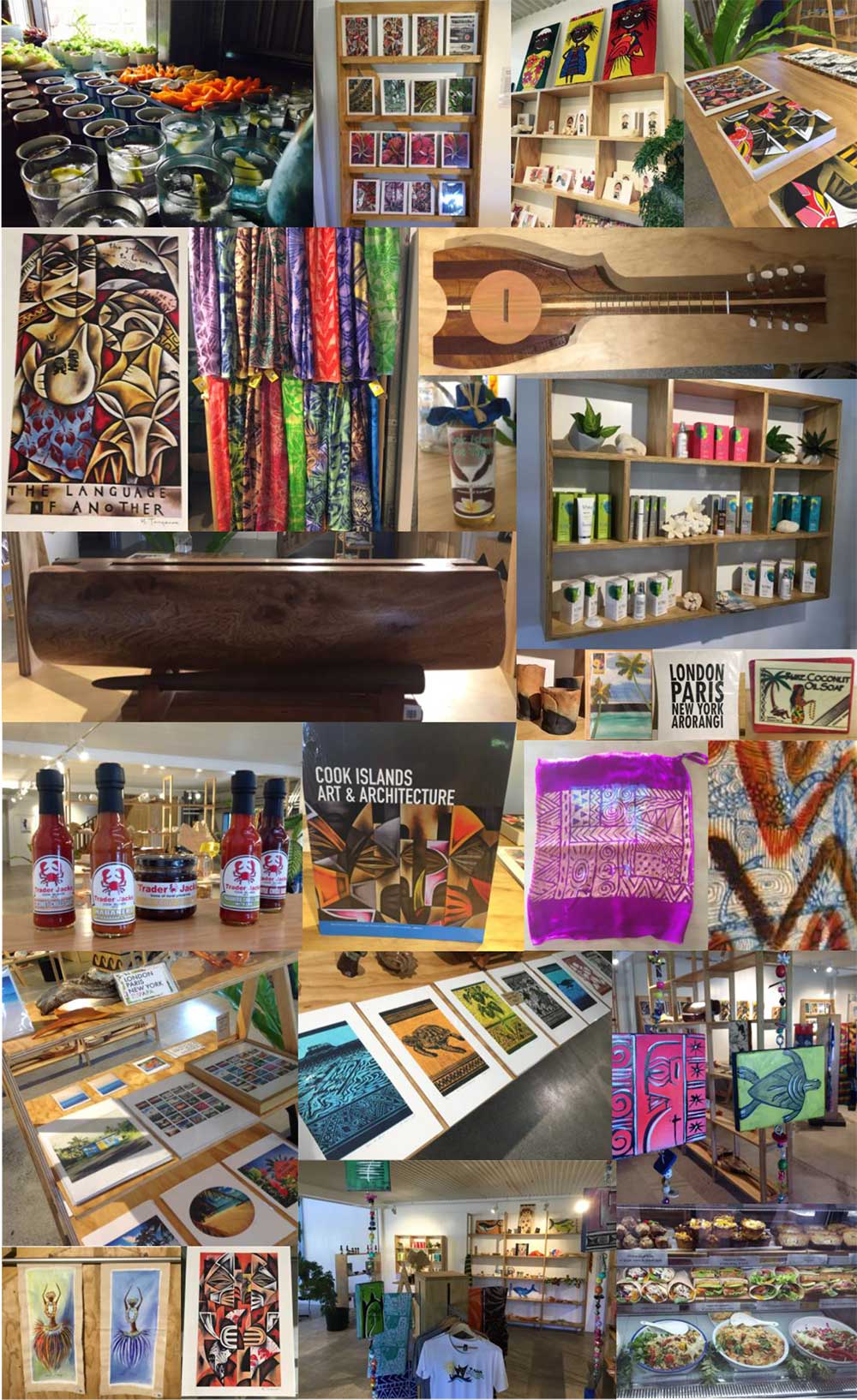
TE ARA - THE COOK ISLANDS MUSEUM OF CULTURAL ENTERPRISE
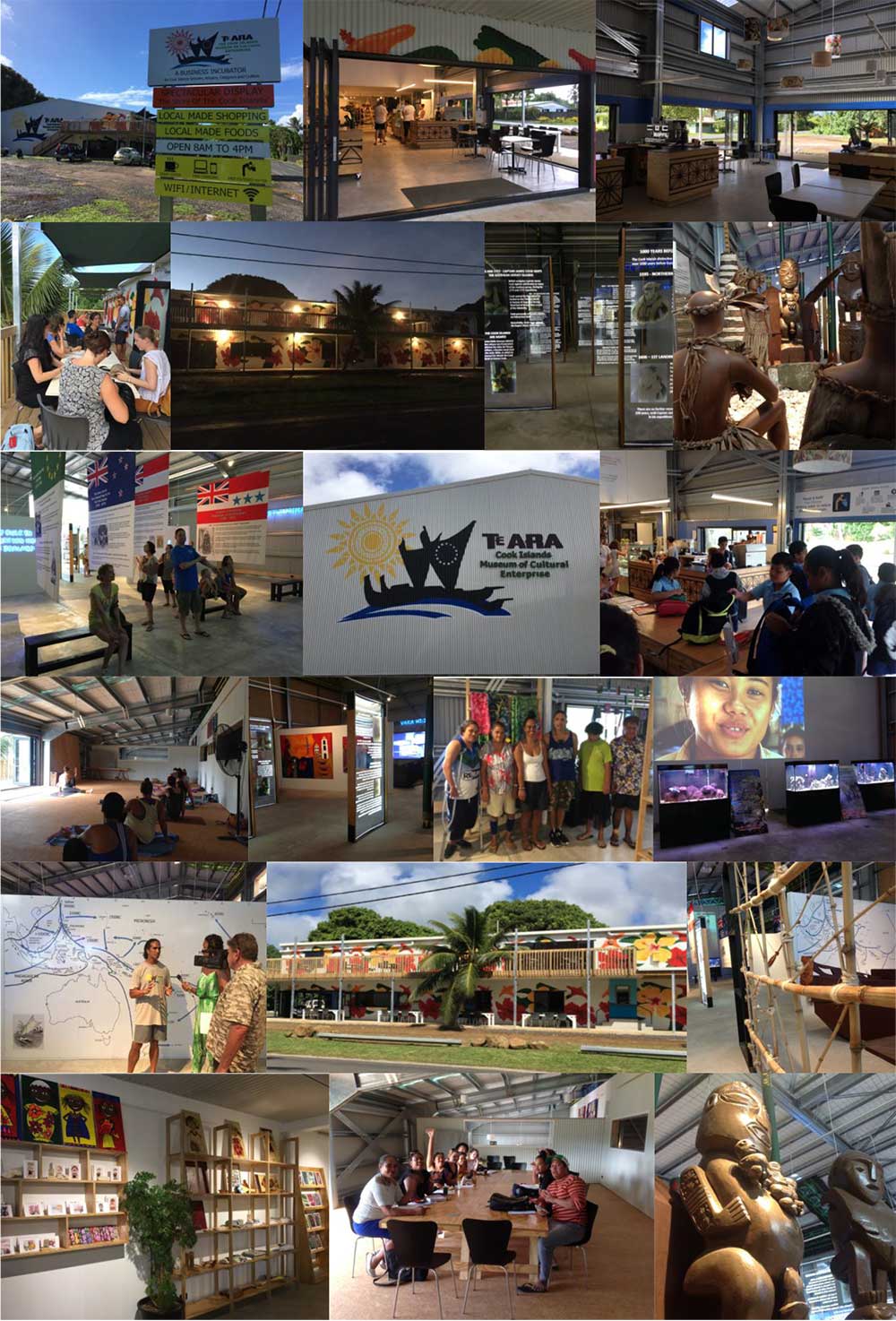
THE BUILD
